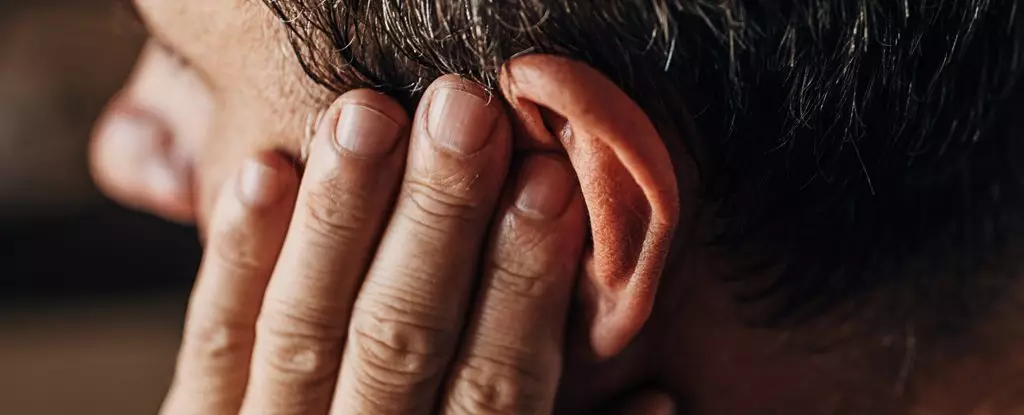Tinnitus, a condition impacting approximately 15% of the global population, manifests as the perception of sound without an external source. Individuals suffering from tinnitus often report hearing ringing, buzzing, or other noise that can vary in intensity and frequency. While commonly linked to hearing loss, tinnitus goes beyond mere annoyance; it can lead to serious mental health issues, such as anxiety and depression, particularly when it persists for extended periods. With no known cure for this perplexing phenomenon, the quest for better management tools has intensified, leading researchers to explore the intriguing relationship between tinnitus and the sleep process.
Tinnitus is classified as a phantom perception, which occurs when the brain generates sensory experiences—like sound—without external stimuli. Most people don’t typically encounter phantom perceptions while awake; however, tinnitus sufferers experience these auditory illusions continuously. This dissonance raises critical questions about how tinnitus alters brain function, particularly in regions responsible for auditory processing. Notably, recent studies suggest that fluctuations in brain activity tied to sleep could provide insights into managing this condition effectively.
Recent research has unveiled specific brain mechanisms that connect the realms of sleep and tinnitus. During sleep, especially in deep sleep or slow-wave sleep (SWS), brain activity undergoes distinctive oscillations that promote recovery and restorative processes. While the brain perceives and processes sounds, these mechanisms falter in individuals grappling with tinnitus. Anomalies in sleep architecture mean that those with tinnitus frequently experience less deep sleep, potentially exacerbating their condition. Consequently, sleep disruption becomes commonplace, and night terrors can occur more regularly in tinnitus patients compared to those without the disorder.
Sleep is composed of various stages, each with unique contributions to overall well-being. During SWS, the body enters a phase of profound rest that subserves memory consolidation and cognitive recovery. However, individuals with tinnitus often find that heightened activity in areas of their brains—particularly linked to auditory perception—disrupts this essential restorative phase. The misalignment between hyperactive brain regions and normal sleep patterns may hinder the brain’s ability to transition into restorative cycles, thereby causing fragmented sleep and resulting in a cascade of negative effects on mental health.
Interestingly, while tinnitus patients experience challenges in obtaining quality deep sleep, some evidence suggests that deep sleep might facilitate a suppression of tinnitus. The brain’s neurons are believed to transition into a recovery mode after periods of wakefulness, which enables a collective drive towards slow-wave activity. When sufficient brain areas engage in this mode, this synchrony could diminish the impact of tinnitus by momentarily lessening its intensity. Additionally, during deep sleep, the interference of hyperactive auditory regions with coherent brain communication may diminish, allowing patients to achieve necessary rest, even amidst the intrusion of tinnitus.
A Glimpse into Future Therapeutics
The implications of understanding the intersection of sleep and tinnitus extend into therapeutic landscapes. For instance, sleep restriction paradigms that advocate for limiting time in bed to when one feels genuinely tired can enhance sleep quality and boost slow-wave activity. By focusing on the amplification of deep sleep and its direct influence on tinnitus, researchers might find pathways for more effective interventions.
Advancements could also involve tracking both sleep stages and tinnitus-related brain activity simultaneously, shedding light on the nuanced interactions contributing to fluctuations in tinnitus intensity throughout the day. This tracking could unravel further dimensions of tinnitus, exploring how specific sleep stages, such as REM sleep, correlate with auditory perceptions.
As scientists delve deeper into the interactions between sleep and tinnitus, new avenues for management and treatment may unfold. Enhancing our understanding of how sleep stages affect brain activity in the context of tinnitus could lead to innovative therapies and improved quality of life for those afflicted by this challenging condition. Emphasizing the importance of restoring healthy sleep patterns offers hope for tinnitus sufferers and signifies a crucial step towards addressing the mental health ramifications tied to long-term auditory disturbances. Thus, the ever-important relationship between sleep and tinnitus stands at the forefront of research, inviting optimism for future management strategies.


Leave a Reply